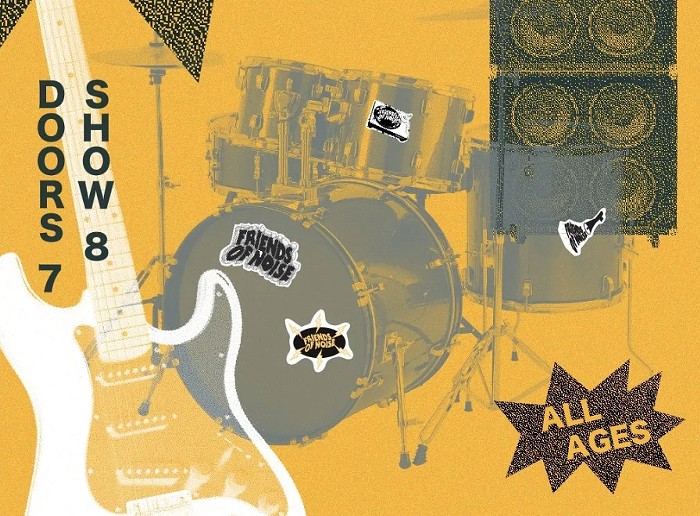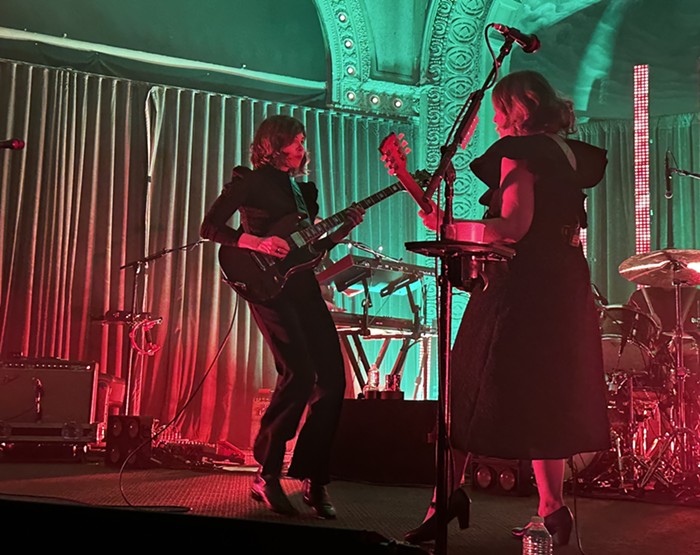There is something seriously wrong with Portugal. The Man. The trio, which splits time between Portland and Alaska, is frustratingly odd—a perplexing mix of Santana grooves, art-punk restlessness, and the deep-rooted sincerity of a few kids who have yet to snuff out the flickering torch of emo. Of course, that sounds like a complete trainwreck on paper, but on Church Mouth (their new album, which will be released this Tuesday, July 24) it's a glorious concoction of unwavering ambition and blurred influences that somehow meshes perfectly.
Perhaps the root of this oddity lies in the upbringing of Portugal's frontman, John Gourley. While most kids were living it up in the 'burbs, Gourley was tucked away deep in the desolate Alaskan landscape. The child of a pair of Iditarod racers (evidently one of the few couples that race together, how sweet), Gourley grew up in a remote cabin, where power came from a generator and music from his hippie parents' LP selection. Years later, he fronted Anatomy of a Ghost, a band whose emo tendencies landed them a record deal with Fearless Records, a substantial fanbase, and a slot on the Warped Tour. But Gourley quickly grew restless with that world, and the band unceremoniously imploded in 2004.
In their earliest incarnation, and on their hastily recorded debut Waiter: "You Vultures!" Portugal was a beat-driven evolution of whatever remained of the charred prog-punk landscape. It was a dark and barren world of yelped vocals and looped drums, and while their peers in bands like the Mars Volta—and to a lesser extent, Coheed and Cambria—worked on their hair (or in Coheed's case, their Dungeons and Dragons skills), Portugal blossomed into a completely different beast.
On Church Mouth, frantic samba beats mingle with jagged punk guitars, both of which are overshadowed by the lopsided howl of Gourley. While his lyrics are vague, if not a bit puzzling—"Speech trial come and lead my palms/Soil pressed to the knees and below"—his voice acts as a beacon, guiding home each and every stray note, until the songs are fleshed out into fully functioning, cohesive units. It's an intriguing approach, especially because the band liberally pick and choose from the freedom of classic rock's bountiful reserve, while still enjoying the discordance and creativity of punk at its very core. Says Gourley, "With this record, we've done a lot of things that I probably would've done with the first record had I known how to play guitar."
While the pendulum of Portugal swings from genre to genre, the band has yet to find a proper home for their music, and the band itself. According to Gourley, "We are a Portland band. We also represent Alaska because that's where we grew up. That's where a lot of my inspiration came from." That inspiration has also weaned the band's primarily underage following off the scourge of emo, and toward the more refined influences of MC5's Kick out the Jams and Santana's Abraxas, two records close to the band's heart. Of course, it's a lot to ask of a band—to shift the tectonic plates of what an entire generation of kids listen to—but if anyone is up for this Sisyphean task, it's Portugal. The Man.


















